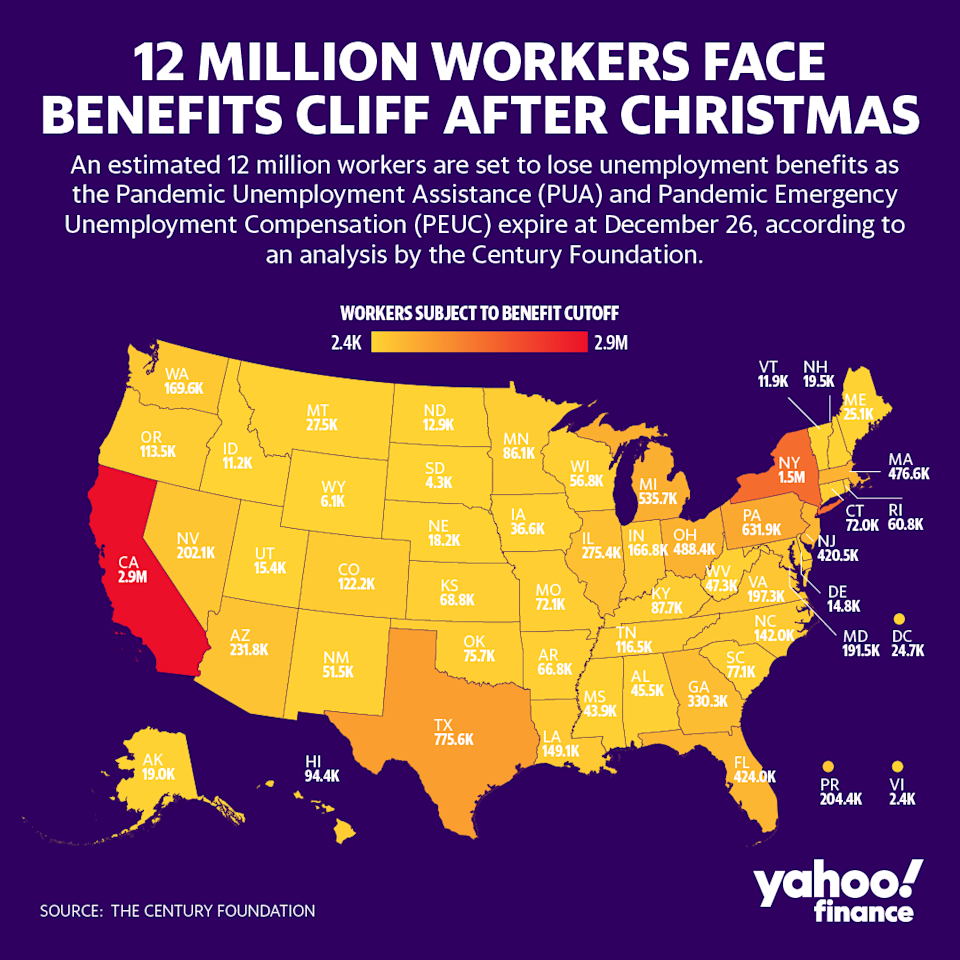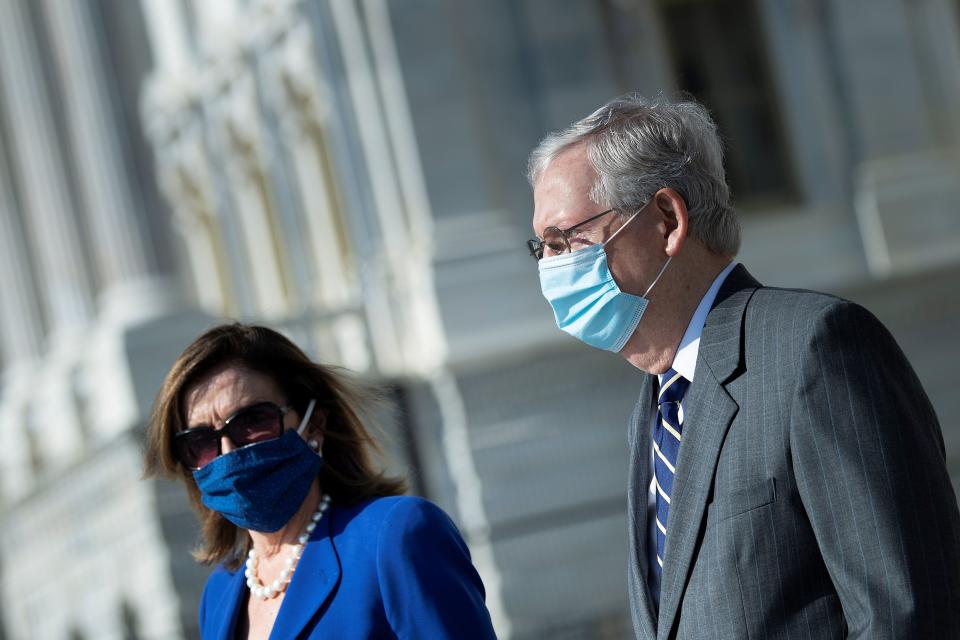Post-Christmas jobless benefits expiration 'threatens to pull the rug out from under' the U.S. economy
Around 12 million American workers will lose unemployment benefits as two temporary stimulus programs expire, according to an analysis by the Century Foundation, eliminating extended benefits earlier than in any recession since 1985.
“It usually is three years, even six years after the recession has officially started when extensions started winding down,” Andrew Stettner, an unemployment insurance expert and senior fellow at the Century Foundation, told Yahoo Money. “This time in less than a year we'd be winding down any kind of extended benefits. It's really unprecedented.”
According to a new report from Stettner and the Employ America’s Elizabeth Pancotti, the stimulus cliff’s actualization would likely slow down the economic recovery.
“This cutoff threatens to pull the rug out from under an economy that has already seen millions of workers lose their state unemployment benefits this fall,” the report stated.
Both the Pandemic Unemployment Assistance (PUA) and the Pandemic Emergency Unemployment Compensation (PEUC) programs are set to expire on Dec. 26. At the same time, there are currently about 10 million more jobs needed to be recovered for the job market to return to its pre-pandemic levels.
“We’re abruptly ending that aid at a time when the virus is raging,” Stettner said. “It's significant both because of its number and because of it happening all at one time.”
‘We'll just get them deeper in the hole than they are already’
California, New York, and Texas are the states with most workers losing benefits — closely aligning with U.S. population distribution — where 2.9 million, 1.5 million, and 700,000 workers will be cut off from those two programs respectively.
Democrats’ latest $2.2 trillion HEROES Act stimulus proposal included an extension of the PEUC, a program that 4.6 million Americans will rely on by the end of the year, the analysis found. This will also extend the PUA with extra 13 weeks. The GOP’s latest $500 billion proposal does not include an extension for either of the programs.
But so far, House Speaker Nancy Pelosi (D-CA) and Senate Majority Leader Mitch McConnell (R-KY), who would likely lead the negotiations from now on, haven’t returned to the negotiating table.

Read more: Here’s what you need to know about unemployment benefits eligibility
Some of the people on PEUC may be able to move to Extended Benefits (EB) a federal program that provides additional 13 weeks but that program is also expiring in many states as their unemployment rates decrease. Only 18 states are projected to have the program in place by the end of December.
Around 2.9 million workers may move to EB but half of the funding for that program is coming from the state putting a strain on their already stretched budgets.
“We'll just get them deeper in the hole than they are already,” Stettner said.

‘The recovery loses even more momentum’
Not only states will have to pay a larger bill but the cutoff in benefits but workers will have by then exhausted most of the savings they have accumulated. Most of that extra money will be depleted by mid-December if no more stimulus is passed, according to an analysis by Evercore ISI, which will weigh on the economic recovery.
“It's very possible that when you look at the aggregate, the United States would continue to grow after these programs expire,” Ernie Tedeschi, a managing director and policy economist for Evercore ISI told Yahoo Money. But “I would expect that it grows at a slower rate and that the recovery loses even more momentum.”

At the beginning of November, spending was down by 6.4%, after being down just 3.5% in mid-October, according to data from Opportunity Insights and JPMorgan Chase. U.S. retail spending in October rose 0.3% or the slowest growth since the recovery began.
This comes as numerous stimulus provisions have including the expiration of the extra $600 in weekly unemployment benefits under the CARES Act in July and second, the expiration of the extra $300 under the Lost Wages Assistance (LWA) program in September.
Denitsa is a writer for Yahoo Finance and Cashay, a new personal finance website. Follow her on Twitter @denitsa_tsekova.
Read more:
Up to 15 million Americans face a devastating loss of pandemic stimulus 'the day after Christmas'
Read more personal finance information, news, and tips on Cashay
Follow Yahoo Finance on Twitter, Facebook, Instagram, Flipboard, SmartNews, LinkedIn, YouTube, and Reddit.
